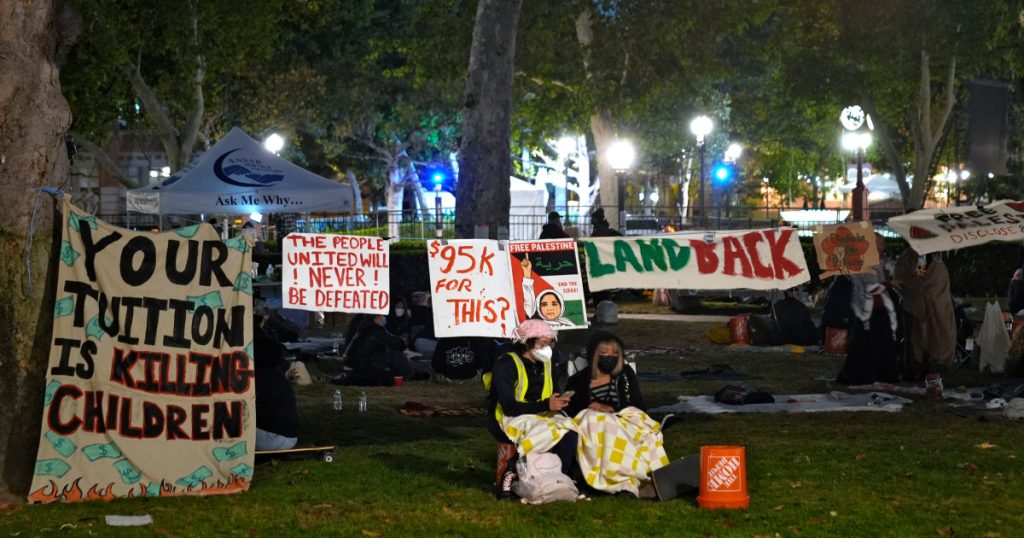Dozens of officers from the Los Angeles Police Department gathered around the campus of the University of California, Los Angeles in an attempt to clear the center of the university park campus. The university warned individuals to leave the center of the campus or risk being arrested. Three fire trucks and two ambulances were also spotted in the area, escalating tension on campus as students and faculty alike were forced to navigate the situation. This heightened police presence comes amid ongoing protests and tensions on college campuses nationwide, specifically in support of Palestinian human rights.
With more than 2,300 arrests made in connection with pro-Palestinian protests on various campuses across the country, universities are now regrouping as they prepare for commencement ceremonies. The University of Michigan, Northeastern, Arizona State, and Ohio State are among the schools where protests have occurred and are expected to have graduation ceremonies soon. School administrations are issuing warnings that disruptions during the ceremonies will not be tolerated, with those responsible for any disruptions being removed from campus. Despite the disruptions and tensions, students continue to protest in support of Palestinian human rights, raising awareness and drawing attention to the ongoing conflict in the region.
The occupation of Columbia University’s Hamilton Hall by individuals like James Carlson, a 40-year-old animal rights lawyer, has prompted questions about the influence of “outsiders” in student protests. Carlson was arrested for snatching an Israeli flag near the campus and setting it on fire, indicating a more extreme approach to protest tactics. However, the extent of the involvement of outsiders in the student protest movement remains unclear. While city and university officials have highlighted the role of external individuals in the occupation of Hamilton Hall, some student protesters believe this narrative is being driven by ulterior motives. The ongoing tension highlights the complexities and challenges of managing protests and demonstrations on college campuses, especially in relation to sensitive political issues like the Israeli-Palestinian conflict.
The situation at Columbia University underscores the broader challenges faced by universities in managing protests and demonstrations on campus. As tensions rise and clashes occur, school administrations are forced to confront difficult decisions around maintaining order and ensuring the safety of students and faculty. The presence of “professional outsiders” in protest movements adds a layer of complexity to an already volatile situation, as demonstrated by the occupation of Hamilton Hall. The ongoing protests at Columbia and nearby colleges have sparked debate and controversy, with conflicting narratives emerging about the nature and objectives of the protests.
The heightened police presence at UCLA reflects a growing concern about maintaining public order and safety amidst escalating tensions and protests. The threat of arrest for individuals who refuse to leave the center of the campus highlights the seriousness of the situation and the need for prompt resolution. With fire trucks and ambulances also on the scene, the situation at UCLA underscores the challenges facing universities in managing protests and disruptions effectively. As campuses grapple with ongoing protests and tensions, the need for dialogue, understanding, and cooperation between all parties involved becomes increasingly crucial.
The broader context of pro-Palestinian protests on college campuses nationwide adds another layer of complexity to the situation, revealing deep-seated political and social tensions. As universities navigate the delicate balance between upholding free speech rights and maintaining campus order, they are faced with difficult decisions around how to address and respond to protests. The ongoing demonstrations and clashes highlight the importance of constructive dialogue, respect for differing perspectives, and a commitment to peaceful and respectful forms of protest and advocacy. Amidst the challenges and tensions, universities must strive to create spaces for open and inclusive dialogues that foster understanding and promote constructive engagement with complex social and political issues.













